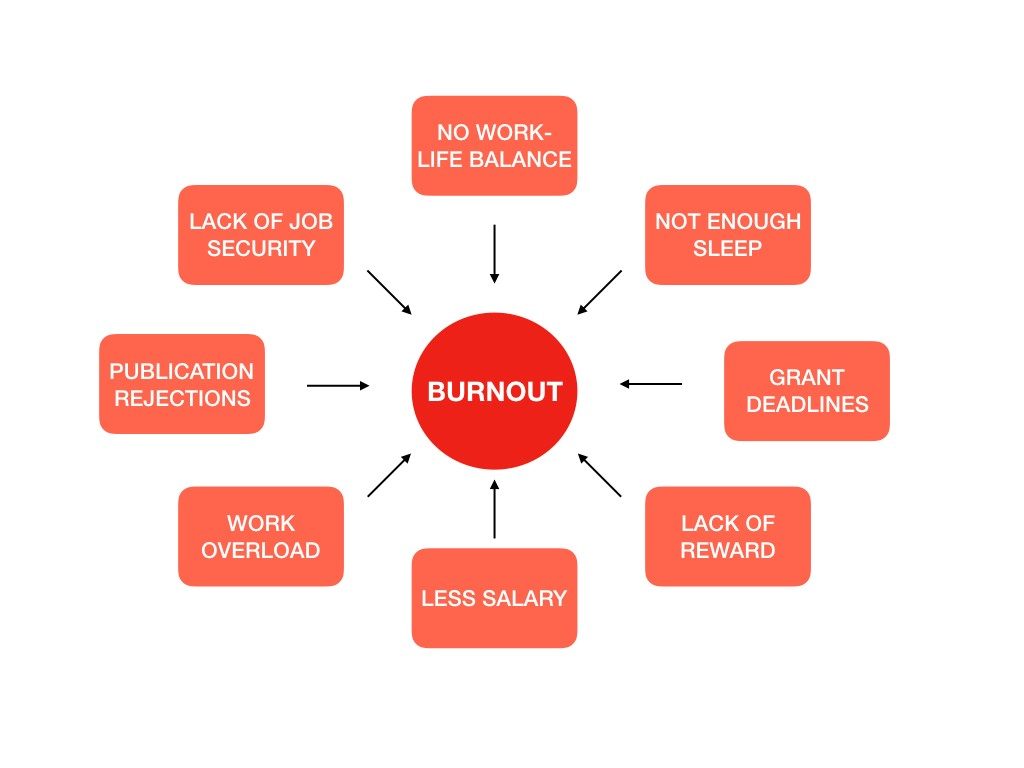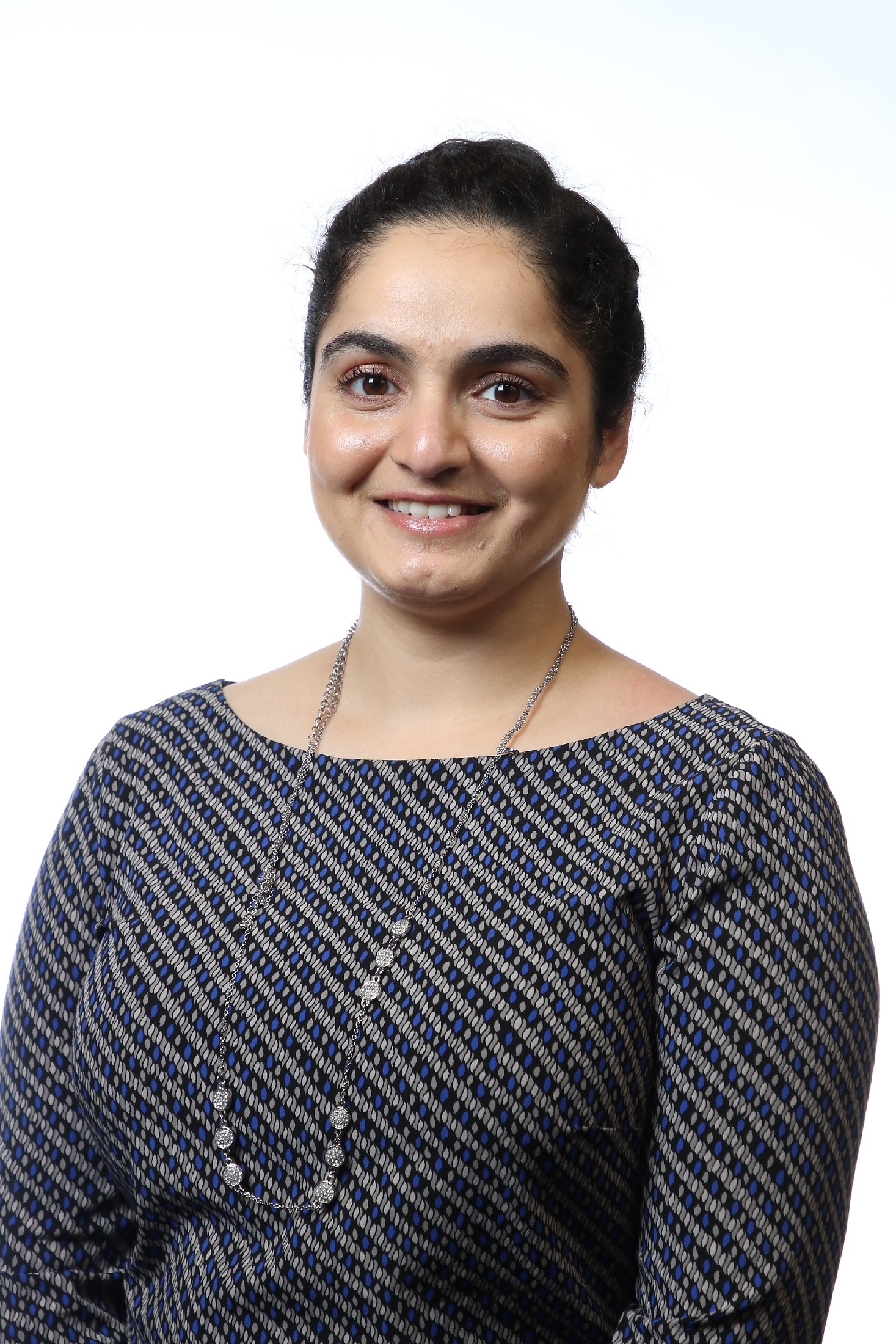When I think about an example for burnout, the first thing comes to my mind is the movie ‘Pursuit of Happyness’. In the movie, Will Smith juggles between professional failures, financial instability, and raising his son as single father. Yet, he refuses to give in to despair, works hard to overcome the hurdles and everything falls in place for him towards the climax. That makes me wonder, does it really happen in our everyday life? Do we ever get to maintain a work life balance and get our happily ever after?
While numerous studies have been concluded to analyze and ablate the levels of burnout in physicians and nurses, it is seldom discussed in field of biomedical research. After spending on average of 5 years in PhD, the hopes of settling in our careers swiftly are really high and with the universities and industries becoming more competitive each day, makes it pretty evident that ‘PhD is not enough.’
With degrees in hand, most of us find ourselves in the pool of postdoctoral fellowship with an ambition to launch one’s career. In this postdoctoral world, where fellows are constantly contending against each other, only a handful will fulfill their dream of landing a permanent faculty position. Well, that doesn’t come as easy as it’s said. It requires years and years of tremendous effort in writing grant proposals, publishing research papers and presenting at scientific meetings rewarded with very low wages and no job securities. To add to the pressures, the postdoctoral period is usually a time of life where we are entering the real adulthood where most people start their families and/or buy a house. While these heaps of workload turn us into perfect multitaskers, many of us may develop a feeling of stress for not providing enough time to family or work and accumulation of these feelings bring us one step closer to burnout.
Following diagram depicts the main causes of Burnout in biomedical researchers:

How to deal with this burnout? Well, here are some of my thoughts:
1. Identify the cause– To pit against burnout, the first thing to know is what triggers your stress levels. You can take out time and list the things that cause distress or note the event that made you anxious. It can be your work hours, competitiveness with your colleagues, or over commitment to tasks.
2. Adopting a healthier lifestyle– To combat burnout, it is pivotal point to become physically active. Numerous studies have shown that exercising regularly can reduce stress and prevent the development of a deeper depression. Also, getting enough sleep can replenish your body fuels. Researchers have established that attaining less than 6 hours of sleep per night may lead to impairment of mental function and thus making you more susceptible of making errors.
3. Reassess and prioritize your goals– As a postdoctoral fellow, it is important to define a clear long-term goal to get the most of your training period. However, writing down your targets for a shorter time span (weekly or daily basis) may help to finish one part of a larger project. Ranking your targets for the day and finishing them on priority basis may help in increasing productivity and provide a feeling of accomplishment. As a researcher, you may hit a roadblock with your experiments or writing a grant. However, it is okay to be flexible with your expectations. Don’t think less of yourself if you adopt a plan B. Reevaluate your final goal, think about your strengths and expand your research horizons.
4. Identify the things which make you happy– When burnout seems inevitable, identify the things which bring happiness to your life. It may be spending time with your family, taking a swim or going on an excursion. Use these resources to recharge your batteries and return to work with a positive attitude.
5. Surround yourself with positive people– Last but not the least, it is really important to keep an optimistic approach towards your goals and spend time with like-minded people who may encourage and support you through every step of the way. It is okay to seek advice from a trusted mentor or a senior person in the lab. Listening to positive research experiences of your peers rejuvenates your interest in the field and makes your job fun and exciting.
“You will burn and you will burn out; you will be healed and come back again.”
– Fyodor Dostoyevsky,

Keerat Kaur is a postdoctoral fellow at Icahn school of Medicine at Mount Sinai in department of cardiology, NY. Her research focuses on reprogramming non-cardiacmyocytes to cardiomyocytes using modified mRNA approach.